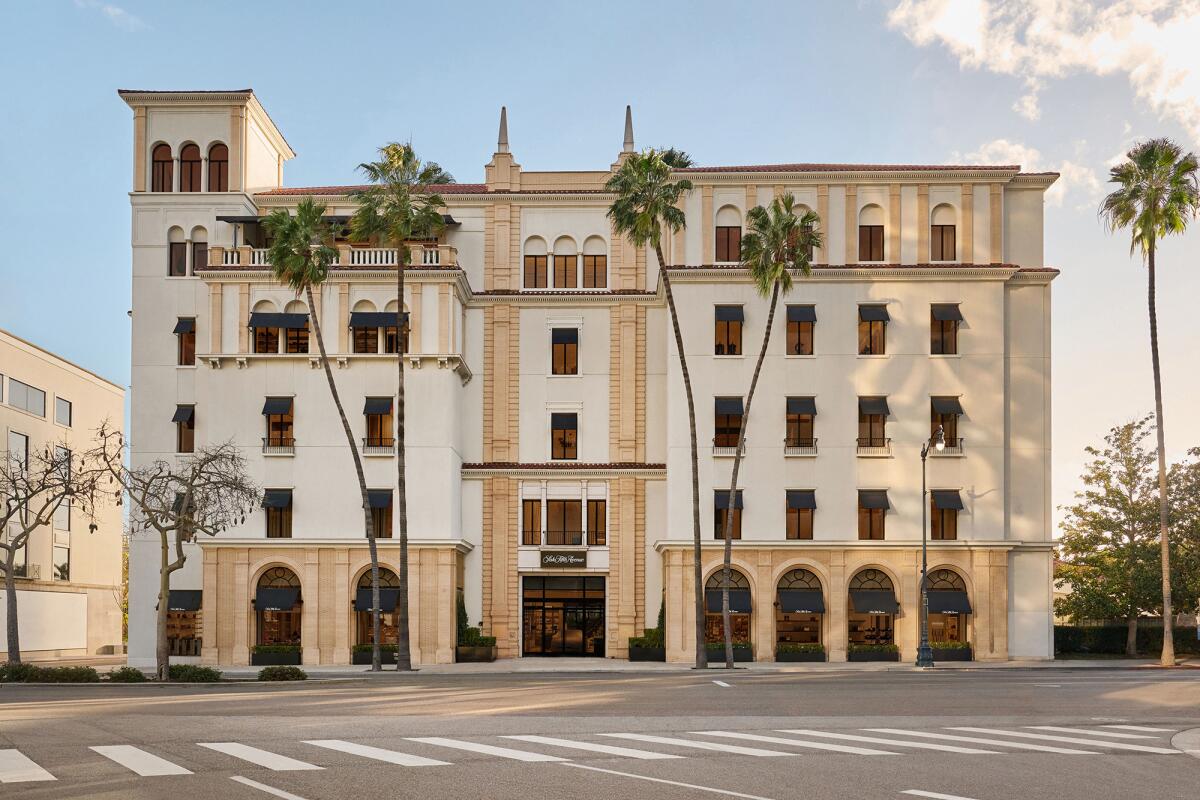Saks owner said to be nearing deal to buy Neiman Marcus for $2.65 billion

- Share via
Two of the biggest luxury department store chains in the country are joining forces, with a boost from Amazon.
The owner of Saks Fifth Avenue has agreed to buy rival Neiman Marcus Group for $2.65 billion, the companies announced Thursday.
Amazon.com Inc. and Salesforce Inc. will help facilitate the deal by Saks owner Hudson’s Bay Co. The tech firms will take minority stakes in a new company, called Saks Global, according to Thursday’s news release.
Hudson’s Bay will also finance the deal with $2 billion raised from investors, the Wall Street Journal reported.
The deal, which comes after years of talks between the two privately held chains, will unite the high-end retailers amid a recent slowdown in luxury sales.
The goal is to cut costs and boost profitability by giving the combined company bargaining power with vendors and reducing supply chain costs and other expenses that can be shared.
Neiman’s bankruptcy in 2020 allowed the Dallas-based department store company to shed billions of dollars in debt, making it a more attractive target.
Saks, Neiman Marcus and Amazon didn’t immediately respond to requests for comment.
The new company will bring together 39 Saks Fifth Avenue stores and 36 Neiman Marcus stores as well as two Bergdorf Goodman stores in Manhattan. Both chains also have outlets.
In Southern California, Saks and Neiman Marcus each operate four department stores, including Beverly Hills locations down the street from each other on Wilshire Boulevard.
The deal comes during a tough period for the department store industry. In February, Macy’s announced plans to close about 150 stores over the next three years, including its Union Square store in San Francisco, after posting a fourth-quarter loss of $71 million.
Although department stores catering to middle-class shoppers have struggled the most, retailers specializing in luxury brands have also been squeezed by inflation and other factors that have weakened demand for such items. Lord & Taylor, previously owned by HBC, shut its retail locations in 2021.
Bloomberg was used in compiling this report.
More to Read
Inside the business of entertainment
The Wide Shot brings you news, analysis and insights on everything from streaming wars to production — and what it all means for the future.
You may occasionally receive promotional content from the Los Angeles Times.











